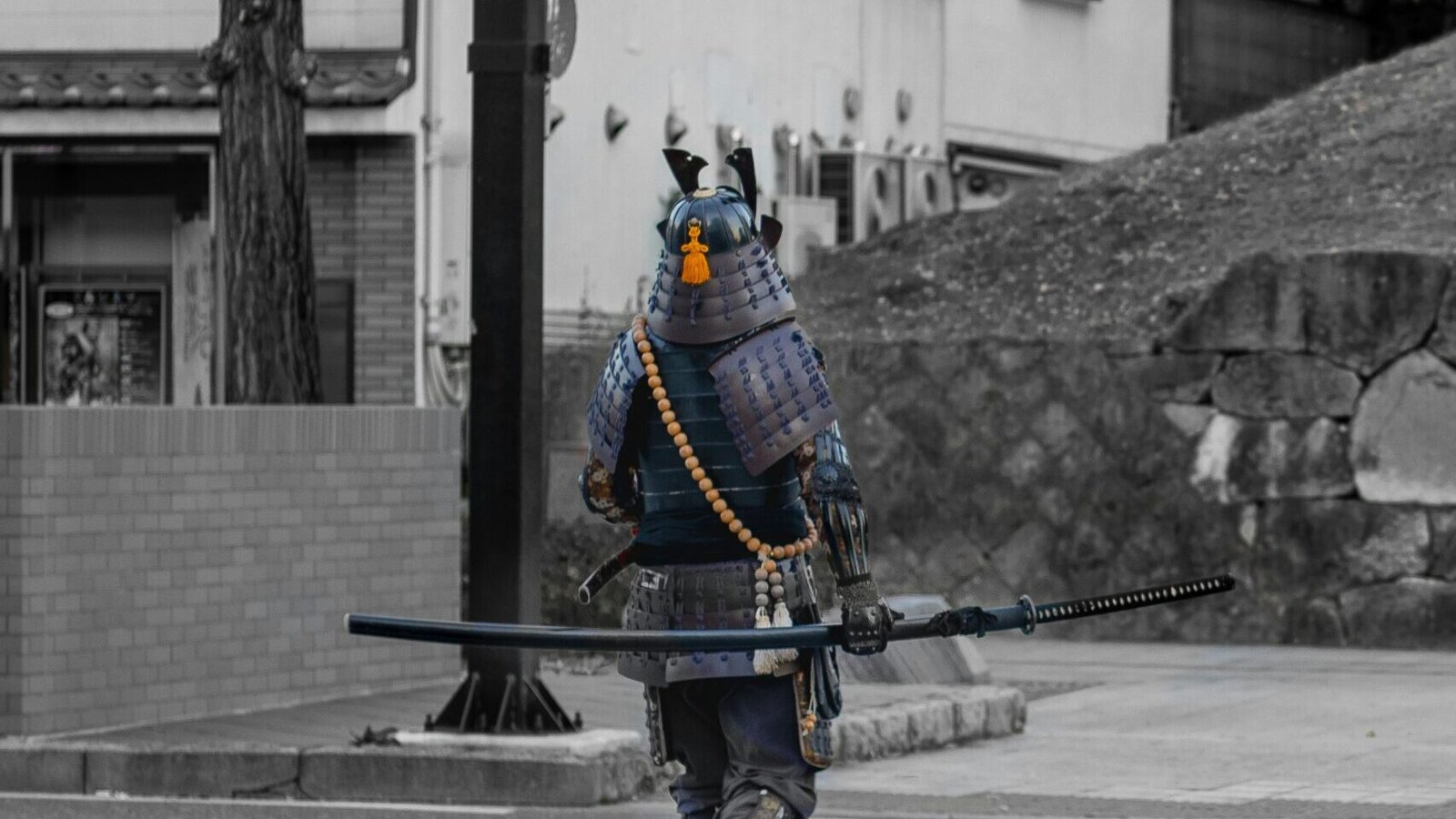Miyamoto Musashi: The Stoic’s Competitive Advantage In Observation

It isn’t events themselves that disturb people, but only their judgements about them ~ Epictetus
Stressful events like exams, interviews and sports create emotions that are especially potent in throwing us off. Miyamoto Musashi’s stoic mindset focuses energy away from emotional overwhelm and channels it into only what we objectively see. This is the art of reducing the subjective burdens we subconsciously place upon ourselves, to live and act grounded in the present moment.
Upon reading The Obstacle Is The Way by Ryan Holiday, my favourite example he drew open was Miyamoto Musashi’s ‘observing eye’ and ‘perceiving eye’. Musashi’s ‘observing eye’ teaches us that we add biases and interpretations when we perceive a situation. Removing these perceptions, we are left with the unobstructed flow and execution of our best possible performance by looking within.
These added burdens stop us from performing to the best of our ability. Therefore, if we strip away the subjective noise and simply observe situations, there is far less to worry about. With far fewer impediments, we have the competitive advantage to focus within our power to achieve the best possible outcome.
Perceptions Cloud Our Vision
Truth is not what you want it to be; it is what it is. And you must bend to its power or live a lie. ~ Miyamoto Musashi
We know countless stories about people performing far better in training for a sport than in a competitive match. Why is that? We develop and refine our readily available skillset, so why do we only tap into a fragment of our potential when it matters? This is because we are clouded within the lens of our perceiving eye.
Our perceiving eye adds interpretations and biases, blurring our view of an event. What if I fail that interview? Is my opponent better than me? I’m scared of being judged if I mess up. These added judgements are a natural part of evolution designed to protect us. However, letting this impulse run unchallenged, we avoid discomfort to our detriment… Use this as an example statement:
‘Everything rides on this shot. I might miss it. This is a bad feeling so I will focus on avoiding it.’
Breaking down this statement, the only objective thing in that sentence is we might miss. We have added new obstacles and hurdles to the situation that will only dilute and overwhelm our focus. Is it really that important if we miss one shot? Is this thought looking out for our best interests? Or is it trying to avoid discomfort in the short term, sabotaging us in the long term? Remove your focus from your perceiving eye because its only purpose is short-term comfort. Our perceiving eye is never concerned with our true happiness or effectiveness when it matters.
Observation Distills To What Matters
Today I escaped anxiety. Or no, I discarded it, because it was within me, in my own perceptions — not outside. ~ Marcus Aurelius
Musashi’s observing eye sees events as just events. Anything we cannot prove to be true is subjective, so it should be disregarded. What is the difference if we cloud our vision with fear of failure or accept the objective chance to fail and move forward anyway? The difference is we are far more likely to succeed with the latter belief than the former.
Sometimes, it is best to take things as they are rather than add any meaning to a situation. Like Marcus Aurelius’ anxiety, it is within us to discard the meaning we have added to an event and live unencumbered without it. For example, take an interview as it is: having a conversation with literally just another person. We notice the weight in any situation is only present because we give it that.
You’re in the middle of a football match and you are passed the ball. You could think about how badly you’ve performed so far, how important this victory will be, how tired you are, how you might be kicked or tackled when you have the ball. These additional pressures of avoiding failure dilute our awareness and presence.
All of this ‘context’ does not actually matter within this moment. What does matter is where the players are, controlling the ball and using only what you see for your next present actions. Absolving ourselves of past or future interpretations gives all of our minds to maximising our impact in the present.
Perspective Empties The Mind
In emptiness there is good but no evil. Wisdom exists, logic exists, the Way exists, mind is empty. ~ Miyamoto Musashi
I play a weekly 6-a-side football league with my closest friends. We are a nice group of lads, but most weeks we face aggressive and dirty opposition. Part of their strategy (or through lack of emotional control), is intimidating us from fouls and talk.
As we are designed to avoid discomfort, we can imagine the natural response to feeling ‘in our own head’, worrying about being fouled, judged, or failing. In this alert but dissociated state, we notice our control gets worse, we react impulsively rather than strategically and we fall into a state of hyper-consciousness.
Musashi wrote The Book of The Five Rings in the context of mastering sword fighting. Musashi often faced multiple opponents at once, with one misstep or hesitation claiming his life. Observation concentrated his energy into ‘emptying the mind’ of personal biases and the individual (us) warping his vision. In emptying the mind, he sharpened his observing eye. ‘The Way’, meaning his next actions, presented themselves unimpeded and were executed effectively.
Worrying about being less skilled or succumbing to our opponent does not affect the moment before or during our strike. Therefore, to maximise our strength, we clear our minds so our present strike is most effective, and we observe the next move and then the next.
We know that two people will always have different perceptions of the same event. Instead of focusing on reacting to impressions from the world, we focus introspectively on emptying our minds entirely. Taking away this noise, we are left only with what is real. By sharpening your observing eye, you will master the present moment.
Observation Creates Flow State
If you seek tranquillity, do less. Or (more accurately) do what’s essential […] which brings a double satisfaction: to do less, better. Because most of what we say and do is not essential. ~ Marcus Aurelius
When we are in ‘flow state’, we are entirely focusing with our observing eye. We unconsciously and effortlessly filter out feelings and worries that hold us back, leaving us with a weightless path through obstacles rather than adding to them.
The pressure we feel in any given situation is purely within our control. If we take things as they are, we experience more awareness of our limiting beliefs and the power to filter out ‘meanings’ that were never objectively important to begin with. Musashi’s observing eye takes away external and internal pressures from a situation. If we fail anyway, we have performed at our absolute best and, in that, learned the most valuable lessons.
When we consciously limit our field of view to what is essential (the present moment within our control), we achieve the double benefit of eliminating our burdens and increasing our energy to what objectively matters. This is why essentialism is one of the key principles within Stoicism and Musashi’s ideas.
Once you score that goal or ace that interview, then you are welcome to be grateful. Just in those moments that really matter, empty your mind of all interpretations. Practice emptying your mind in everyday situations, and enjoy the deep presence and acceptance it gives you. Train your observing eye, and you train your flow state. Train your flow state, and you exist in happiness and maximising possible outcomes.


